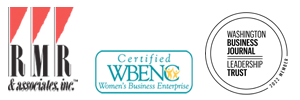Media Relations Maryland – Download our FREE whitepaper!
 Robyn Sachs has headed RMR & Associates since 1987. This Media Relations firm in Maryland fully understands that to gain attention, advertising demands a higher order of creativity. But we also know your Maryland media relations firm (or a media relations firm in any other state for that matter), must get results. So we build accountability into every client’s program. Because we’re not just media relations firm in Maryland. We realize that all of your marketing communications must be measurably productive.
Robyn Sachs has headed RMR & Associates since 1987. This Media Relations firm in Maryland fully understands that to gain attention, advertising demands a higher order of creativity. But we also know your Maryland media relations firm (or a media relations firm in any other state for that matter), must get results. So we build accountability into every client’s program. Because we’re not just media relations firm in Maryland. We realize that all of your marketing communications must be measurably productive.
Robyn Sachs, President of RMR & Associates, the leading woman-owned media relations firm in Maryland, located in Rockville, Maryland says: If you’re looking for media relations in Maryland, no one will work harder for you to achieve the results you want than we will. And we have over 250 company and product roll-outs to prove it!
MEDIA TRAINING
Your CEO is squirming. Your chief technology officer speaks techie talk and not much else. Your comptroller likes numbers much more than people. But you need to enlist all of these people to speak to various media outlets about the present and future of your company or non-profit organization.
Here are some observations concerning challenges inherent in enlisting management types in talking to the media and advice he has for turning the minuses into pluses.
MEDIA DYNAMICS
Executives don’t understand media dynamics. A spokesperson needs to understand that the typical journalist is harried, has a deadline to meet, and sees the executive only as a way to an end, as a means to meet a deadline. Journalists typically have no time for people who are not going to give them good information, which is the first of many reasons the executives you work with need to listen to what you as media-relations pros tell them.
If you do what your PR person tells you, you’re going to maximize your chances of press getting it right. Media-relations managers have to drive home what expectations the executive speaker can realistically achieve through a media interview and connect those expectations to a set of behaviors and responses designed to deliver those expectations. Media-relations staffers also have to do their homework to provide executive spokespeople with information on the journalist’s responsibilities (deadlines, beat coverage, story purpose) and level of knowledge.
STRATEGIC MESSAGING
PR needs to frame messaging because that’s part of why executives don’t like speaking with the media. Journalists won’t shift their frame of reference for PR’s convoluted way of thinking. Deliver your message in terms reporters can understand and immediately consume so their questions are natural and easy. Then train your speaker to guide journalists beyond the sound bytes, through your message points so that an inverted pyramid story nearly writes itself through the interview.
JARGON
There are lots of ways to blow an interview. The best way is to mismatch language. As the media trainer, know the level of jargon that your spokespeople can use with the media without confusing them or turning them off to writing a story about your news. The second best way, is over-answering. The more you talk, the more that you risk snatching defeat from the jaws of victory. In other words, over-communicating even the best message bores journalists and bogs them down with too much data and they tune your speaker out.
We recommend PR and media-relations communicators sit in on interviews the press conducts with official company spokespeople. If the exec goes off on a tangent or generally sounds like a windbag, the media-relations representative can cut him or her off. Practice this in mock interviews before your spokespeople go live. When they start over-communicating, teach them to explain their answers and then stop.
TRUST
A lot of people just don’t trust the media, and trust is a difficult thing to teach. If your group’s management members are wary of the media, ask them to trust the process. They need not trust the individual they are talking to if they have mastered the company’s message.
You can’t control the media by being arrogant. Train spokespeople to establish power in the interview process and act confidently. Even if journalists ask the terrible “what if” questions, which put executives in hypothetical crises and ask how they would manage the company given those circumstances.
Your upper-management company representatives can refuse to answer sticky questions, but rather than turning down questions belligerently, ask them to answer without creating controversy. They can “bridge”, saying, “No, I’m sorry, our number of customers is proprietary information, but I can tell you that we have increased our customer base by 11 percent in each of the last three quarters.”
Keep these tips in mind and your media experience will be much smoother. Or, contact us here at RMR for more customized media training
